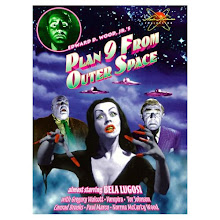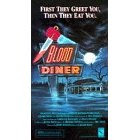by Jason Pyles
I chose this week’s film, “Delicatessen,” and I’m somewhat proud to report that I selected it without having ever seen it before. Risky, I know, but who else in our film discussion group can say that? And I am prouder still that I have not picked amiss.
“Delicatessen” (1991) is an unusual blend of about 50 percent “Amélie” (2001) and 40 percent “The City of Lost Children” (1995), though it preceded both of those movies. (Perhaps the other 10 percent belongs to “Sweeney Todd: The Demon Barber of Fleet Street.”)
Notably, all three of the French films were more or less influenced by the same men: Jean-Pierre Jeunet, Marc Caro and Gilles Adrien served in various capacities as directors and writers for “Delicatessen,” “Amélie” and “The City of Lost Children.”
Films like these are the stuff of circus workers’ bad dreams. “Delicatessen’s” post-apocalyptic, nowhere city’s setting looks like Tim Burton’s Gotham City (a la 1989) — after a fire — in the daytime. Indeed, the visual experience of “Delicatessen” is one of its greatest strengths. We immediately sense the uneasiness that accompanies this creepy world whose starving society has deteriorated to a moral complacency that accommodates cannibalism.
What intrigues me most about "Delicatessen" is its subtle theme of vampirism. In the daylight, danger lurks beneath the surface, but everyone is basically safe. Most of the "butcherings" typically happen in the stairwell at night, when a lone straggler wanders off to unwittingly meet his or her demise in the darkness, only to be consumed by hungry, formerly friendly feeders, who crave the victim's flesh for survival.
The beastly butcher unavoidably reminds us of Sweeney Todd — and yet he’s not the most troubling character. Perhaps it’s the frog man whose swampy dwelling yields many mini meals of escargot. Or scarier still, what about the cruel tenant who ruthlessly and relentlessly torments Aurore Interligator, the most creative and simultaneously least successful suicidal character I can think of. Anyone capable of that kind of psychological torture is nothing less than a monster.
“Delicatessen” has some memorably rhythmic scenes, most of which revolve around squeaky mattress springs. And speaking of music, any film that features a musical duet with a cello and a saw is a film for me.
Perhaps the most striking consideration of “Delicatessen,” to me, is the assignment of guilt and innocence among the characters: I found myself trying to attribute one or the other to each person. … I wonder why. Without a doubt, next to the late Dr. Livingstone (the monkey), Louison is probably the most innocent. Julie is not as innocent as she might seem, but she tries to atone and save Louison from her butchering father (though it is for her own selfish reasons).
Unfortunately, for delicate, good-hearted circus performers like Dr. Livingstone and Louison, they live in a world where the lions roam free and clowns are delicacies.
Sunday, November 2, 2008
Subscribe to:
Post Comments (Atom)






























































No comments:
Post a Comment